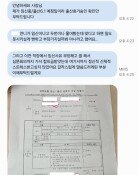The Posco 3.0 Era
The completion of POSCOs steel plant in the port city of Pohang, North Gyeongsang Province, in 1972 was a historic accomplishment, opening a new chapter in the 60-year history of the Korean economy along with the Gyeongbu Expressway. Korea has made great advances in shipbuilding, cars, steel and consumer electronics since producing steel, a staple of industry, on its own. Formerly Pohang Iron and Steel Co., POSCO ranked fourth last year in global production capacity after Luxembourgs ArcelorMittal and Chinas Hebei Iron and Steel Corp. and Baoshan Iron and Steel Corp. The Korean company, however, tops the world in steel quality along with world No. 6 Nippon Steel of Japan.
Author Lee Byung-ju said, If faded by the sun, it becomes history, and if faded by the moon, it becomes a myth. POSCO is a company that has the most myths and the longest history in Korea. The spirit of facing right stemmed from POSCO founder Park Tae-joon, who said at the factorys groundbreaking ceremony on April 1, 1970, If we cannot meet the deadline, all of us shall jump to our deaths into Yeongil Bay on the right side. The two-story wooden building on the sand field off the bay is where the companys 39 charter members worked day and night, and is nicknamed Rommel House. Then President Park Chung-hee gave Park a written symbol in his handwriting reading, Anyone who bothers Park Tae-joon will not be safe to prevent officials or politicians from soliciting money or goods or intervening in personnel management or for the sake of their own interests.
The steelmaker is stressing management innovation in the era of POSCO 3.0. It wants to use the global economic crisis as an opportunity to make a big leap forward following its 1.0 era, when it built plants in Pohang and Gwangyang, South Jeolla Province, and the 2.0 era, when it saw continuity and growth while undergoing privatization, changed its name, and built the FINEX facility. The company wants to turn into a comprehensive conglomerate by going beyond steel and fostering non-steel sectors such as energy, construction, and resource development to compete on the world market. The steelmakers acquisition of Daewoo International has heralded the era of POSCO 3.0.
This year marks the 40th anniversary of the start of the Pohang steel plant`s construction. POSCO now faces a huge challenge in Chinas fast rise in the steel industry. Diversification is important but if the steelmaker fails to maintain competitiveness, the winners curse could plague the company. Though this applies not only to POSCO, another challenge is the distorted perspectives of certain Korean government officials and politicians who give the company sidelong scowls as if it did something wrong. This will hardly encourage a good sales performance by the steelmaker.
Editorial Writer Kwon Sun-hwal (shkwon@donga.com)
Headline News
- N. Korea launches cyberattacks on S. Korea's defense companies
- Major university hospital professors consider a day off each week
- Italy suffers from fiscal deficits from ‘Super Bonus’ scheme
- Inter Milan secures 20th Serie A title, surpassing AC Milan
- Ruling and opposition prioritize spending amid tax revenue shortfalls







